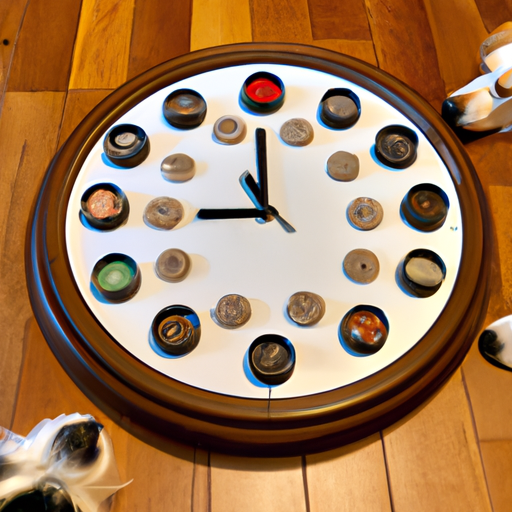As a caregiver to your beloved canine friend, it’s important to know the best times and ways to feed them. This guide is tailored to help you understand the optimal feeding times, the benefits of maintaining a feeding schedule, the differences in feeding times depending on your dog’s age and health, and how to handle dogs with special dietary needs. Let’s dive in.
Understanding Your Dog’s Feeding Schedule
Feeding your dog at the right time every day is crucial. Consistency helps maintain your dog’s digestion and keeps their biological clock in check.
- Puppies: Puppies usually eat three to four times per day.
- Adult Dogs: Adult dogs, particularly active ones, should maintain a consistent feeding schedule with two meals per day.
- Senior Dogs: Older dogs, like puppies, might need to eat more frequently, with three meals a day.
Consistency is key. Once you establish a feeding schedule, stick to it as much as possible.
Benefits of a Consistent Feeding Schedule
Maintaining a consistent feeding schedule for your dog has several benefits:
- It helps regulate their bathroom schedule.
- It prevents overeating and obesity.
- It keeps their energy levels steady throughout the day.
- It can help manage medical conditions that require medication at specific times.
Age-Specific Feeding Schedules
The age of your dog plays a significant role in determining their feeding schedules.
| Age | Feeding schedule |
|---|---|
| Puppy | 3-4 times a day |
| Adult | 2 times a day |
| Senior | 3 times a day |
Managing Special Dietary Needs
Sometimes, your dog might have specific dietary needs due to health conditions or lifestyle factors. In these cases, consult your vet before setting a feeding schedule.
- Dogs with diabetes may need to eat at the exact same time every day.
- Active dogs or dogs with high metabolisms may need more frequent meals or special diets.
- Overweight dogs may need fewer or smaller meals to help lose weight.
Handling Feeding Time Behaviour
Dogs can exhibit a range of behaviors around feeding time. Some might get overly excited, while others could show signs of food aggression. It’s important to handle these behaviors appropriately.
- For overly excited dogs, instil discipline by making them sit or stay before serving food.
- For dogs showing food aggression, try hand feeding and adding food gradually to their bowl to establish trust.
Frequently Asked Questions
1. Can I feed my dog only once a day?
It’s not recommended to feed your dog only once a day. Most dogs should eat at least two meals a day to keep their energy levels constant.
2. What time should I feed my dog?
There’s no ‘one-size-fits-all’ answer to this. However, the first meal can be between 7 a.m. to 10 a.m., and the second between 5 p.m. to 8 p.m.
3. Should I leave food out all day for my dog?
This method, known as free feeding, is not recommended for all dogs as it can lead to overeating and obesity.
4. How do I know if my dog needs a special diet?
Your vet will be able to guide you on this. Any drastic changes in weight, coat condition, or behavior could indicate a need for a special diet.
5. How much food should my dog eat?
The amount of food your dog needs can depend on their age, size, breed, and health condition. Always consult your vet to determine the right amount.
Remember, as a caregiver, the health and wellbeing of your dog are in your hands. A well-planned feeding schedule not only ensures their physical health but also their emotional wellbeing.



